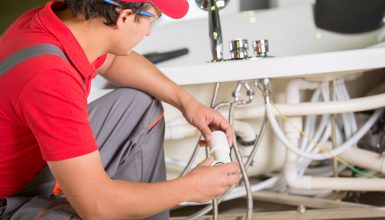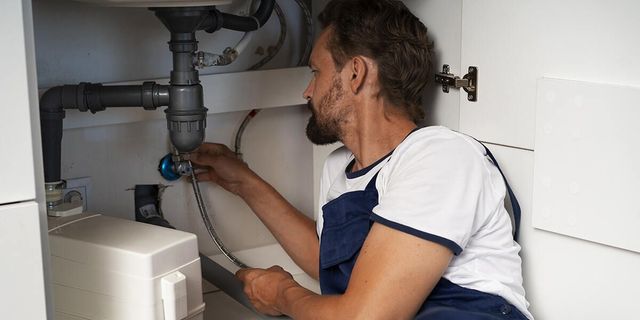Easy Procedures to Improve Low Water Pressure in Your Home
Easy Procedures to Improve Low Water Pressure in Your Home
Blog Article
Just how do you actually feel when it comes to 9 Reasons for Low Water Pressure in Your House?

Low water pressure in your house can be an irritating issue, affecting everything from showering to cleaning dishes. If you're experiencing weak water flow, there are a number of feasible reasons and services to discover. In this overview, we'll talk about typical factors for low tide pressure and sensible actions to resolve the concern properly.
Intro to Low Tide Pressure
Low tide stress takes place when the flow of water from your taps, showers, and various other fixtures is weak than normal. This can make everyday tasks more tough and less reliable. Comprehending the sources of low water pressure is critical to locating the best solution.
Usual Causes of Low Tide Pressure
Faulty Pressure Regulators
Pressure regulators are responsible for keeping constant water stress in your house. If they malfunction, it can cause low tide stress or irregular flow throughout your home.
Metropolitan Supply Of Water Issues
Often, the problem exists outside your home. Local water system issues, such as main line leakages or maintenance job, can momentarily decrease water pressure in your location.
Pipe Obstructions
With time, pipelines can become obstructed with natural resource, sediment, or particles, restricting the circulation of water. This is a common problem in older homes with galvanized steel pipes.
Corrosion
Corrosion within pipes can lead to leakages and lowered water stress. Rust build-up can tighten water circulation, particularly in maturing plumbing systems.
How to Detect Low Water Pressure
Inspecting Pipelines
Examine visible pipelines for indicators of leaks, corrosion, or clogs. Pay attention to any unusual noises, such as banging or rattling pipes, which might indicate concerns within the plumbing system.
Consulting with a Plumber
If you're not able to determine the source of low water stress, consider hiring a specialist plumber to perform a complete assessment. They can determine underlying problems and recommend suitable solutions.
Checking Faucets and Fixtures
Beginning by testing the water pressure at different faucets and fixtures throughout your home. If the concern is isolated to particular areas, it might suggest local problems.
DIY Solutions to Fix Low Water Pressure
Flushing Hot Water Heater
Sediment accumulation in the water heater can restrict circulation and reduce effectiveness. Purging the container periodically assists remove sediment and preserve optimum performance.
Checking Pressure Regulator
Guarantee that the pressure regulatory authority is working appropriately. Readjusting or changing the regulator can aid bring back appropriate water stress throughout your home.
Cleaning Aerators and Showerheads
Natural resources can build up in aerators and showerheads, minimizing water circulation. Get rid of and clean these elements consistently to improve water stress.
Clearing Up Clogs in Piping
For small blockages, attempt utilizing a plumbing serpent or chemical drain cleaner to clear obstructions in pipes. Beware when utilizing chemicals and comply with security standards.
When to Call an Expert Plumber
If do it yourself efforts stop working to settle the issue or if you suspect substantial plumbing troubles, it's finest to seek aid from a qualified plumber. They have the competence and devices to resolve intricate concerns securely and efficiently.
Preventive Measures to Preserve Water Stress
Mounting a Pressure Booster
Consider installing a stress booster pump to improve water pressure in areas with constantly low circulation. This can be especially helpful for multi-story homes or residential or commercial properties with high-demand fixtures.
Monitoring Water Usage
Bear in mind water use practices and avoid ill-using the plumbing system. Easy changes, such as incredible showers and laundry tons, can help keep appropriate water pressure.
Regular Maintenance
Schedule regular maintenance for your plumbing system to stop issues such as deterioration, leakages, and blockages. Attending to minor troubles early can aid stay clear of more significant repair services later on.
Verdict
Handling low water stress can be frustrating, however identifying the underlying causes and applying proper remedies can restore ideal flow throughout your home. Whether it's cleaning up aerators, checking pipes, or speaking with a plumber, taking positive steps can guarantee a steady supply of water for your day-to-day requirements.
FOUR WAYS TO FIX LOW WATER PRESSURE NOW
Turning on a shower or faucet only to find the water comes out in a sad, slow drizzle is never a good feeling. How exactly are you supposed to wash a pan or take a quick shower when it takes 10 minutes just to rinse off a little soap? The good news is that when your water pressure is bad, there's always a cause: typically one that can be easily fixed. Here are some of the most common causes of low pressure and what you can do to fix the issue:
DEBRIS AND MINERAL DEPOSIT BUILDUPS
If you notice low water pressure from just one or two of the fixtures in your house, the problem likely has to do with debris buildup. Water is full of minerals and other debris, all of which can accumulate in your pipes and on your fixtures. This can cause a blockage that affects how much water flows through. To fix this, try filling a small plastic bag with white vinegar, and use a rubber band to hang it around your showerhead or faucet. Let the head of the fixture soak for a few hours, and the vinegar should loosen the deposits.
WATER LEAKS
Leaks are another common cause of low water pressure. If water is flowing out of your plumbing through a hole or crack before it can reach your fixture, the pressure coming out of the faucet or showerhead will be lower. A plumbing professional is your best bet for finding and repairing a leak in your water supply pipes.
Leaks are another common cause of low water pressure. If water is flowing out of your plumbing through a hole or crack before it can reach your fixture, the pressure coming out of the faucet or showerhead will be lower. A plumbing professional is your best bet for finding and repairing a leak in your water supply pipes.
A VALVE ISSUE
If you have low water pressure throughout your home, check your main shut-off valve to make sure it's completely open. You may also want to see if there's a pressure-reducing valve installed. If there is, have a plumber help you adjust the settings to get the pressure you're looking for.
OTHERS USING WATER
Believe it or not, your low water pressure could be caused by your neighbors. If you notice low pressure at certain times of day, it may be because you and the people living next to you have similar schedules - when everyone is showering at the same time, the pressure will be lower in every home. Low pressure throughout the neighborhood may also be caused by an issue with your municipal water supply. If that's the case, call the supplier to see if they're working on the issue.
https://www.rotorooter.com/blog/water-leaking/low-water-pressure-fixes/

I was shown that write-up on 4 Ways to Troubleshoot Low Water Pressure through an acquaintance on our other site. Those who liked our page plz make sure you remember to share it. Thanks so much for taking the time to read it.
Call Report this page